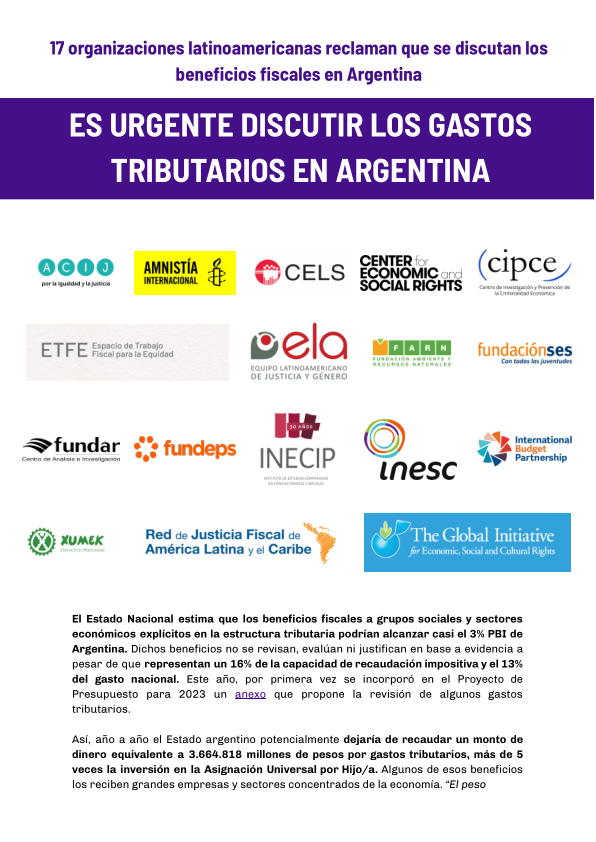In a context of contracted social spending, the Argentine Congress is currently discussing 2023’s budgetary law project, which encourages a comprehensive review of existing tax benefits. CESR and 16 local and international organizations are calling for an urgent legislative discussion about this issue in the country, which has been overlooked for decades.
States must mobilize all their available resources to fulfill human rights. This obligation will often require them to increase the availability of resources progressively, sustainably, and in ways that promote substantive equality, through measures such as combating illicit financial flows, tax evasion and avoidance, corruption, and fully utilizing direct taxes.
While countries often fail to take such measures, Argentina faces a unique opportunity to expand its fiscal space in a rights-respectful manner by reviewing opaque and inequitable existing tax benefits and privileges. As explained in the joint declaration, which has been echoed by several news outlets, tax benefits account for almost 3% of Argentina’s GDP, enough to fully fund several of Argentina’s flagship social protection programs. We argue that such review should follow the guidelines included under Principle 10 of the Principles for Human Rights in Fiscal Policy, which indicate that benefits should be subject to ongoing assessment, be tied to measurable goals, be tailored to strategic, rights-aligned goals, and be equitable and publicized.
